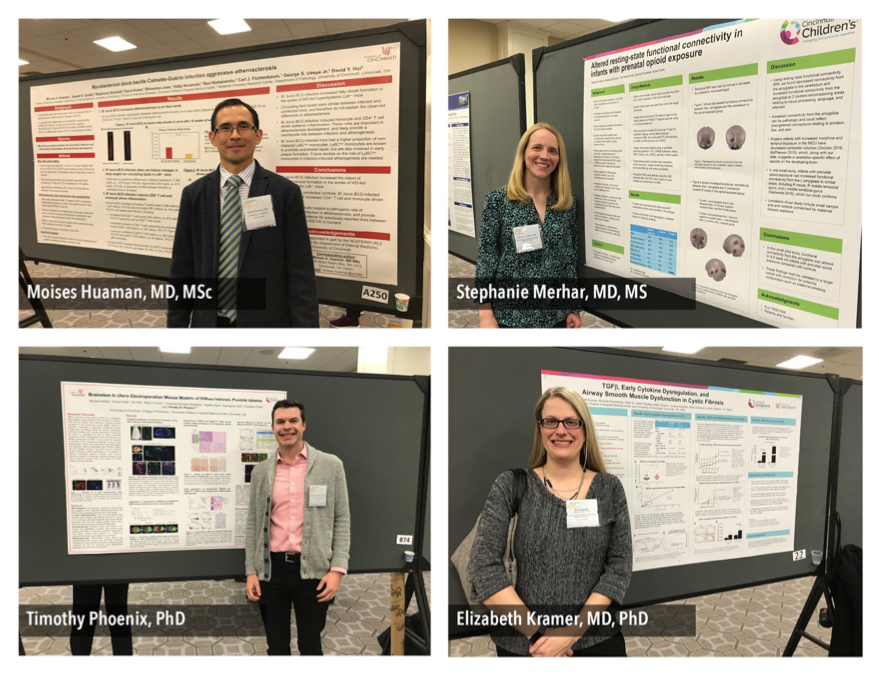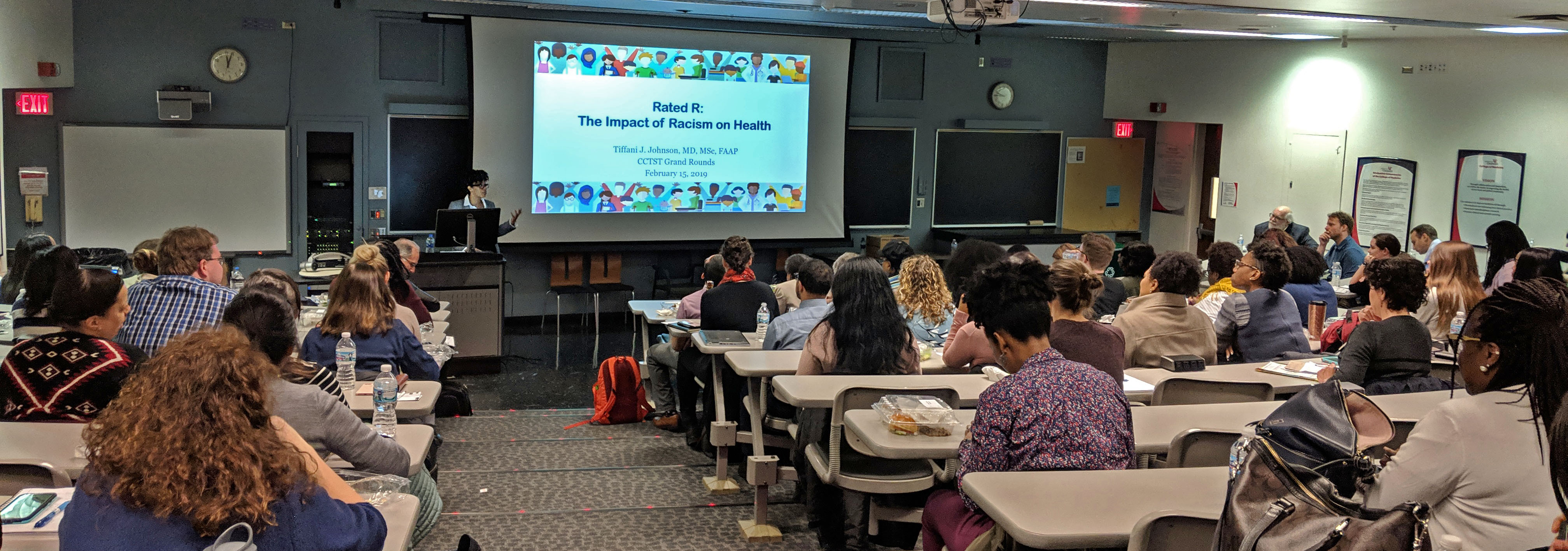As a program within the CCTST, the Center for Improvement Science (CIS) aims to develop collaboration initiatives. Connecting investigators to resources and collaborations is a need across the CCTST partner institutions and the community. To address this need, the CIS developed The Collaboration Network to overcome institutional and disciplinary barriers to connecting with colleagues with complementary interests.
The Collaboration Network (TCN) is a growing group of investigators, clinicians, and faculty that meet weekly to learn about each other, CCTST resources, and funding opportunities. The Thursday morning meetings take place in the Medical Sciences Building (MSB) on the UC Academic Health Center campus. WebEx is offered for those who are unable to participate in-person. Members of the group receive a weekly agenda and can choose to participate based on the topics and their availability. Guests and experts are frequently invited to participate in order to find collaborators or to provide information about a service or resource. On a monthly basis, the TCN highlights one of its members in the “Member Spotlight” session, in which a member presents their work, research, needs, and interests in collaboration. These sessions will be archived on the CIS website as a resource for TCN members and others.
The newest initiative of the TCN is a quarterly, topical session with invitees from across the university, other CCTST partner institutions and community organizations. The inaugural quarterly session took place on January 17, 2019. It had 82 participants (based upon login information for the program). The topic of the session was Aging. The following colleges, institutions, and organizations participated:
University of Cincinnati Colleges and Units: College of Allied Health Sciences, College of Arts and Sciences, Blue Ash Campus, Clermont Campus, College of Design, Architecture, Art, and Planning, College of Education, Criminal Justice, Human Services, College of Engineering and Applied Science, College of Medicine, and College of Nursing.
Other Institutions and Organizations: Cincinnati Council on Aging, Episcopal Retirement Services (Marjorie P. Lee Residence), Live Well Collaborative, Maple Knoll Communities, Procter and Gamble, Tri-Health (Good Samaritan Hospital), UC Health (UC Medical Center-Evidence Practice Council), and the Cincinnati VA Medical Center.
The two-hour session included four short presentations from different locations: 1) Allied Health Sciences, 2) DAAP, 3) Nursing, and 4) Live Well Collaborative (including presentations by Live Well, P&G, and Council on Aging). The session also included a general discussion about potential collaborations and next steps. The CIS committed to gathering information on participants, creating a repository with the recording of the session, slide sets, and other resources. The CIS is creating a website that will organize these resources and those from future quarterly meetings. The CIS team is also organizing “next-step” meetings to help the group move forward on educational, research, and practice initiatives. The goal of these quarterly events is to create communication and collaboration networks to support broad-based initiatives, support faculty and investigators, and to support the missions of the organizational participants. The session and presentations can be viewed at: https://cctst.uc.edu/programs/cis/collaboration.
The CIS will be assessing the value and impact of TCN initiatives on the creation and effectiveness of social/professional networks, the development of collaborative projects, grants, and educational programs, and the overall productivity of individuals and organizations.
For more information about the TCN, contact Jack Kues or Laura Hildreth.






